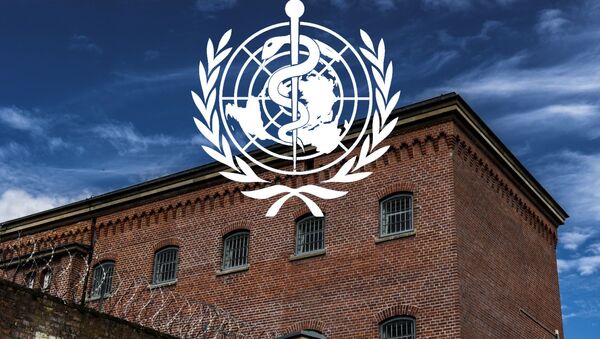The World Health Organization (Europe) has published a 40 page report on how governments must deal with prisoners and detainees who are especially vulnerable to the COVID-19 pandemic, as well as to human rights violations more generally.
The document makes clear that states are responsible for ensuring the health and well-being of their incarcerated peoples and that while there is no one-size-fits all approach, there are key obligations which must be met and strategies which can be employed by every country.
— WHO/Europe (@WHO_Europe) March 23, 2020
"Consideration should be given to measures such as distributing food in rooms/cells instead of a common canteen; or splitting out-of-cell time, which could be divided by wing/unit to avoid concentration of prisoners/staff even in open spaces", the guidelines say. Though they also note that, "[w]ith these caveats, access of prisoners to the open air should be maintained and not fall below a minimum of one hour per day".
In addition to providing the latest practical advice from a medical and scientific perspective the interim guidelines also set forth a series of principles which all states are expected to abide by including:
- People in prisons and other places of detention should enjoy the same standards of health care that are available in the outside community, without discrimination on the grounds of their legal status.
- Adequate measures should be in place to ensure a gender-responsive approach in addressing the COVID-19 emergency in prisons and other places of detention.
- Prisons and other detention authorities need to ensure that the human rights of those in their custody are respected, that people are not cut off from the outside world, and – most importantly – that they have access to information and adequate healthcare provision.
— WHO/Europe (@WHO_Europe) March 23, 2020
"To effectively tackle a COVID-19 disease outbreak in prisons, state authorities need to establish an up-to-date coordination system that brings together health and justice sectors, keeps prison staff well-informed, and guarantees that all human rights in the facilities are respected" a statement from the WHO reads. "A public health emergency of international concern requires a global response that includes measures taken inside prisons and other closed settings", they add.
In Iran, one of the countries worst hit by the outbreak - which has been heavily exacerbated by US sanctions, the government has released tens of thousands of prisoners for their safety.
On 18 March 2020, nearly 200 doctors wrote an open letter to key officials in the Australian government demanding that they do more to address Julian Assange's prison conditions, as well as to lobby for his release as a vulnerable prisoner. WikiLeaks's official Don't Extradite Assange campaign has also launched a petition calling for vulnerable prisoners like the incarcerated publisher to be released and his lawyers are due to file an emergency bail application on his behalf, on 25 March, on the basis that he and others are in "imminent danger" from COVID-19.




